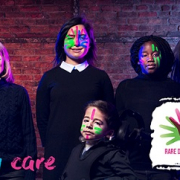Genomics in government policy
How do we bring exciting research, exceptional medicine and public opinion to routine clinical practice?
At the end of last year, the House of Commons Science and Technology Committee launched an inquiry into genomics and genome editing. The main role of the committee is to examine the work of different government departments and ensure that policy and decision making is based on sound scientific advice and evidence.
Collecting evidence
The terms of reference for the inquiry are very broad, encompassing applications of genomics and genome editing for wildlife, plants and animals as well as people. Focusing on disease in humans, the inquiry has sought input on issues including: whether current regulatory systems are fit for purpose; ethical, social and safety concerns; building on the work of the 100,000 Genomes Project; and investment in NHS infrastructure and skills and training.
Written evidence has been gathered from Genomics England, NHS England and the National Data Guardian for Health and Care among many others, including leading charities, think tanks and research institutes, as well as commercial companies.
Genomics and healthcare
Submissions have focused primarily on the ways in which the application of genomics will, or should, transform the health service. NHS England explains that the 100,000 Genomes Project will be the first step towards embedding genomic medicine throughout the NHS. They outline their vision to ‘develop a healthcare system focused not just on treating illness, but one that is able to accurately support the prediction and prevention of disease, tailor treatments more precisely, with shared decision making and patient participation at its heart’.
The National Data Guardian (Dame Fiona Caldicott) refers to ‘genetic and genomic medicine increasingly becoming part of mainstream NHS care’ and the need to consider how genomic and clinical information about patients should be used and shared to support care, as well as the consent model to support this.
Ethics and consultation
It is probable that a host of concerns surrounding genome editing will surface in the course of the inquiry, from both within the scientific and medical communities and from the wider public – perhaps especially with respect to human applications. Many submissions have shown concern regarding ethics and regulation, although a fair amount of work has already been done in this area; not least the Nuffield Council on Bioethics major review of ethical issues associated with gene editing in humans published last year. Some call for a clear distinction to be made between non-heritable applications of genome editing (effectively an advanced form of gene therapy) and the more contentious germline modification of human embryos.
Many respondents also refer to the importance of increasing public understanding of the issues raised by genomic medicine, to ensure that a suitable consensus about what is and is not acceptable can be reached. This is seen as important with respect to both the wackiest theoretical applications of genome editing and everyday matters of consent and confidentiality in the NHS, as well as attitudes to medical research in general. Social scientists such as those at the Wellcome Trust are running projects – such as ‘Socialising the Genome’ – to encourage public engagement, which will be crucial in developing a personalised medicine service for all.
As the inquiry moves on to hearing verbal evidence from selected experts it will focus on key findings that can be used to inform policy and transform the health service on a larger-scale. The next few years will be crucial in terms of making sure that both evidence and social attitudes imbue official policy. That is no mean feat, but we can be sure that genomics is here to stay.









